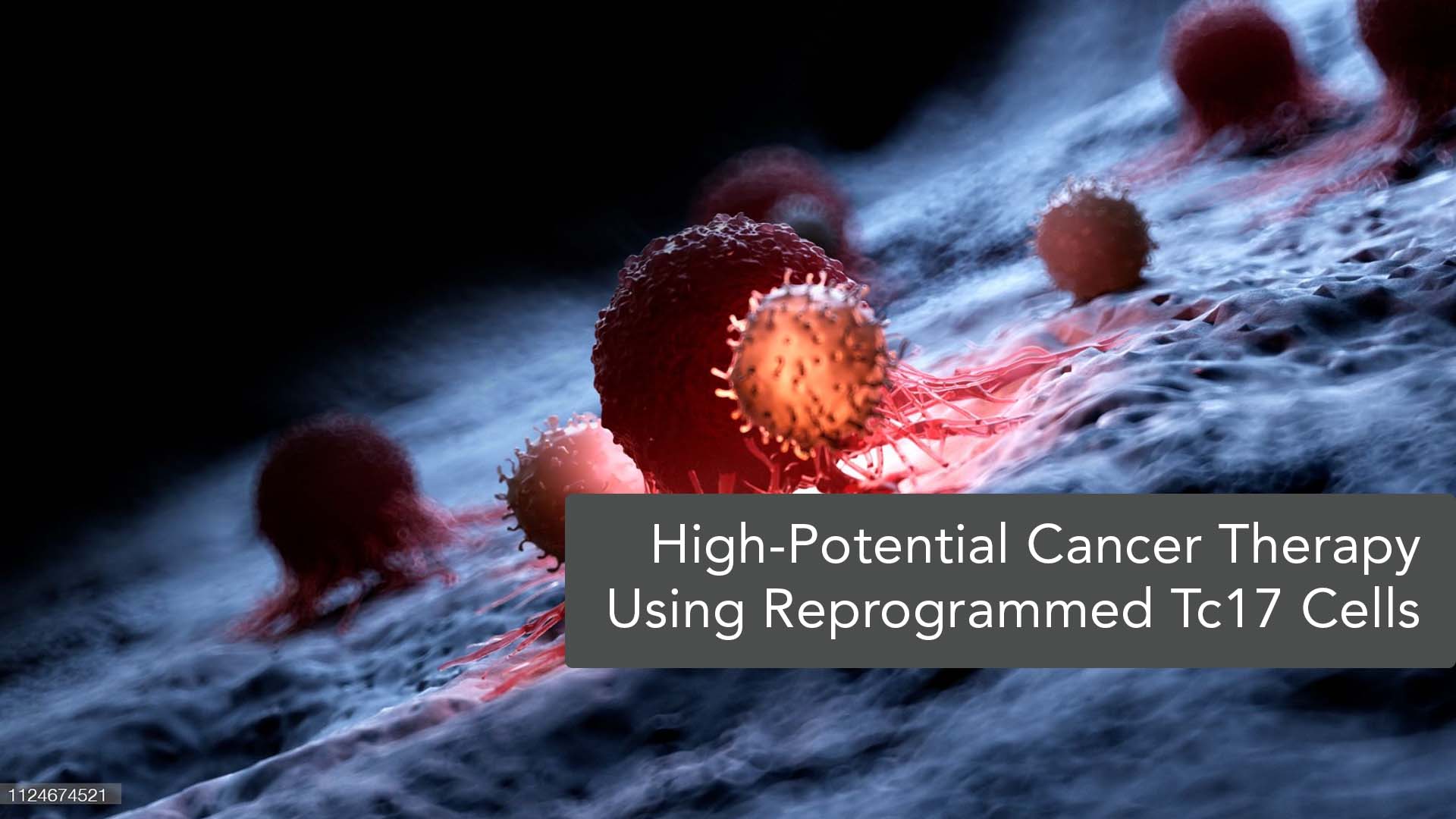Reprogrammed Tc17 Cells: Signalling Pathway & Cancer Treatment

The Novelty
This study reports a novel signalling pathway which converts IL-17-producing CD8+ T cells (Tc17) to IFN-γ producers, leading to enhanced antitumour activity and cytotoxicity of Tc17 cells. The pathway is initiated by IL-4 followed by PI3K/AKT signalling which induces the expression of Eomes and upregulates T-cell receptor-associated transmembrane adaptor 1 (TRAT1) in Tc17 cells. The upregulation of TRAT1 then promotes IL-4-induced T-cell receptor (TCR) stabilization and Tc17 cytotoxicity. IL-4, besides acting as an inducer, is capable of promoting Tc17 cells expansion to achieve higher antitumour potential. On top of these findings, a novel ex vivo procedure is proposed to reprogramme Tc17 extracted from human peripheral blood mononuclear cells (PBMC) in order to be applied in adoptive cell therapy (ACT) for cancer patients. By having enhanced cytotoxicity, the novel ACT could potentially treat a wide spectrum of cancers.
The Background
Immune effector cell (IEC) therapy primarily involves the use of one’s immune system to treat cancer in his/her own body. Despite its proven potential, there is a huge room for development as the recently applied IEC strategies induce acute but short responses. IL-17-producing CD8+ T cells (Tc17) has been identified as a promising candidate for IEC therapy for its ability to be reprogrammed as cytotoxic anti-tumour effectors. However, Tc17-based IEC is yet to be ready due to the limited knowledge on the factors affecting Tc17 reprogramming and the mechanisms underlying its cytotoxicity promotion. Thus, upon discovering the answers to these uncertainties, this study has taken extra miles to establish a feasible procedure to expand Tc17 from peripheral blood of cancer patients. The research outcome creates a profound impact in oncology by enhancing the applicability and efficacy of Tc17-based IEC therapy.
The SDG Impact
With more than 100 types of cancer reported, the continuous development of immunotherapy is crucial to uphold the survival rate of cancer patients. The discovery of a potent Tc17-based adoptive cell therapy (ACT) serves not only as a possible cure, but also as robust knowledge base for future research. By disclosing the signalling pathway involved, this study facilitates the development of new cancer therapies (UNSDG 3: Good Health & Well-Being).
